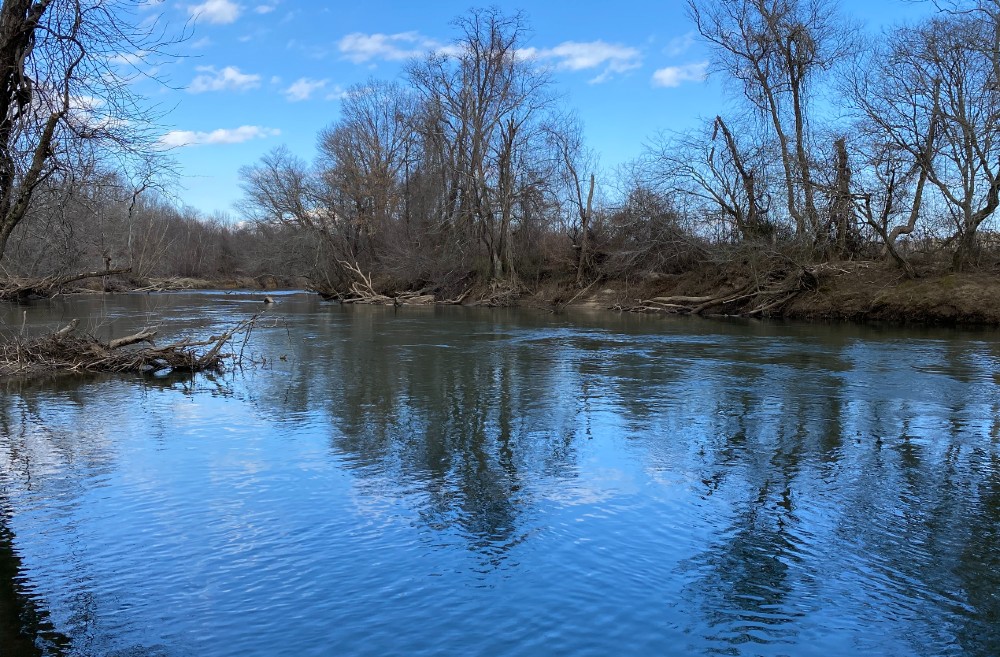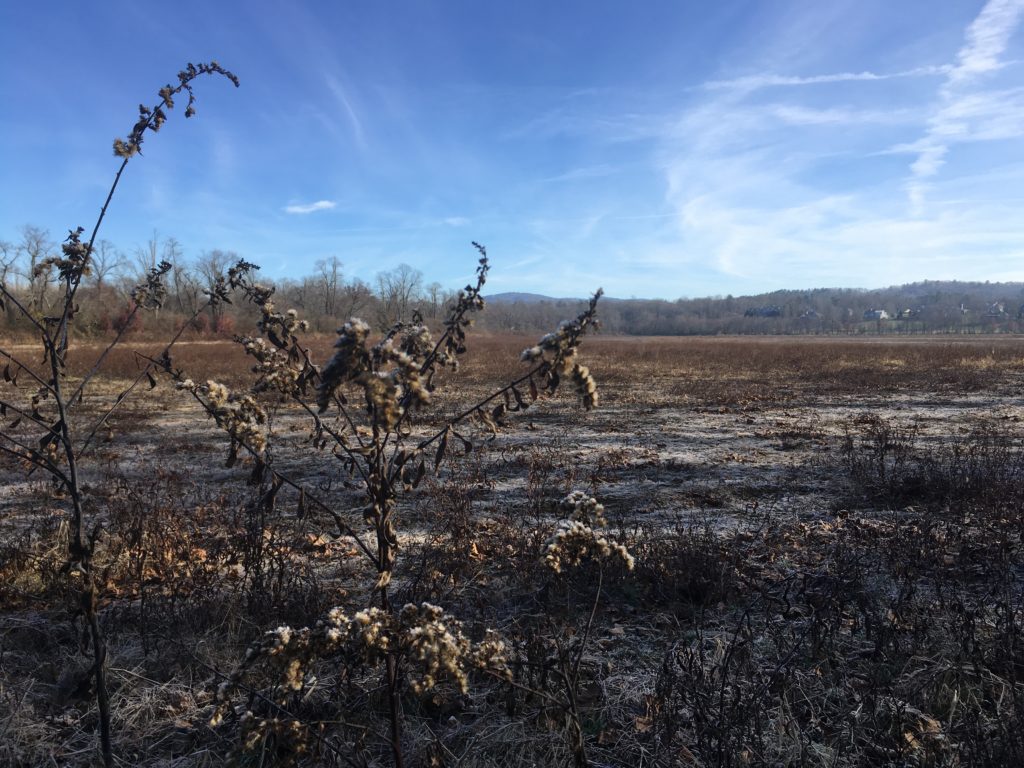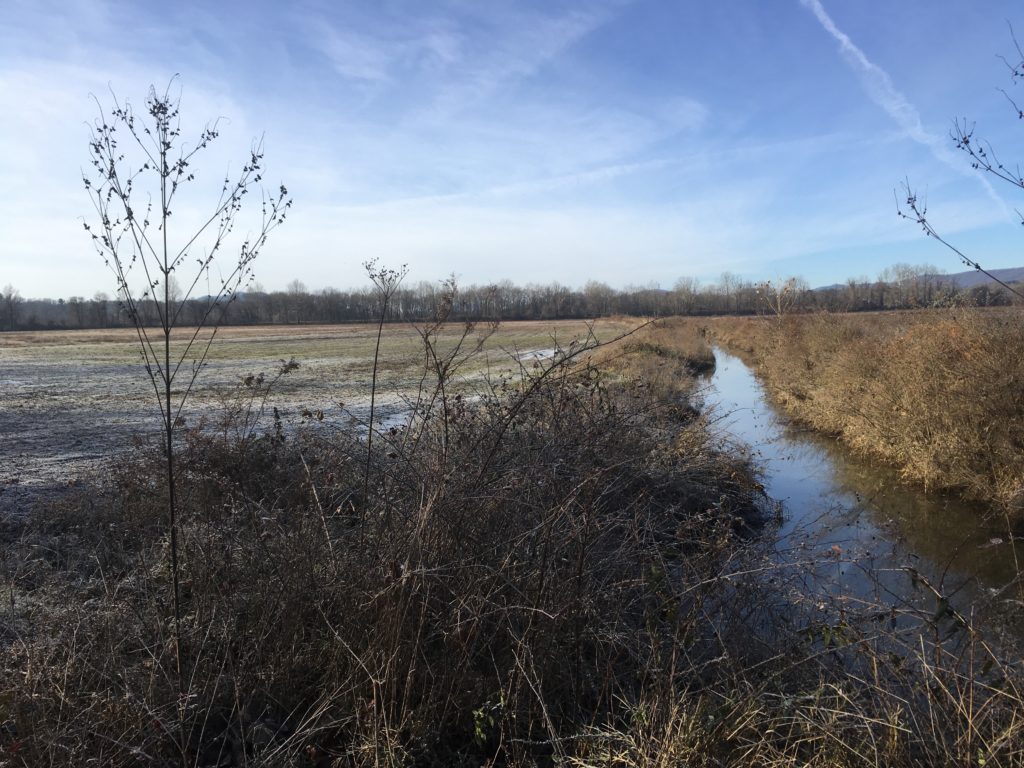87 Acres on French Broad River Protected
Private Investors Get a Return from Conservation
By Pat Barcas
An 87-acre former sod farm on the French Broad River in Mills River could be the site of a new floodplain restoration, similar to the nearby Mouth of Mud Creek restoration. The property was recently protected with the support of savvy private investors who are using their money for conservation.
In December, Conserving Carolina purchased the King’s Bridge property, named for the bridge on Highway 191 over the river. The land now presents an opportunity for wetland restoration or possibly a public access boat ramp on the river.
“This property lends itself well to both things,” said David Lee, natural resources manager for Conserving Carolina.
A restoration on the site would expand the ecological comeback begun at the Mouth of Mud Creek, just 2.1 miles upstream. Last summer, Conserving Carolina completed this 103-acre restoration, which provides important habitat for the muskellunge—or muskie, our largest native fish—and many other kinds of wildlife. It was a story about this project in the Asheville Citizen-Times that sparked interest in King’s Bridge for some private lenders, who ultimately made the land acquisition possible.
“People saw the wonderful article regarding the mouth of Mud Creek. I gave a tour at Kings Bridge, they saw the potential of what could happen at the property, and the connectivity of what was done upstream and they liked that,” said Tom Fanslow, land protection director for Conserving Carolina.
“By funding projects like these, people get at least as much financial return that they would in a money market account, with the bonus of social responsibility,” Fanslow says. “They put money in and see results in the environment around them.”
Funding a conservation project through private means is a leap of faith, but one that investors were willing to take based on trust of Conserving Carolina’s previous track record. The loan program is based on a triple bottom line in achieving financial results: environmental, social impact, and helping the environment.
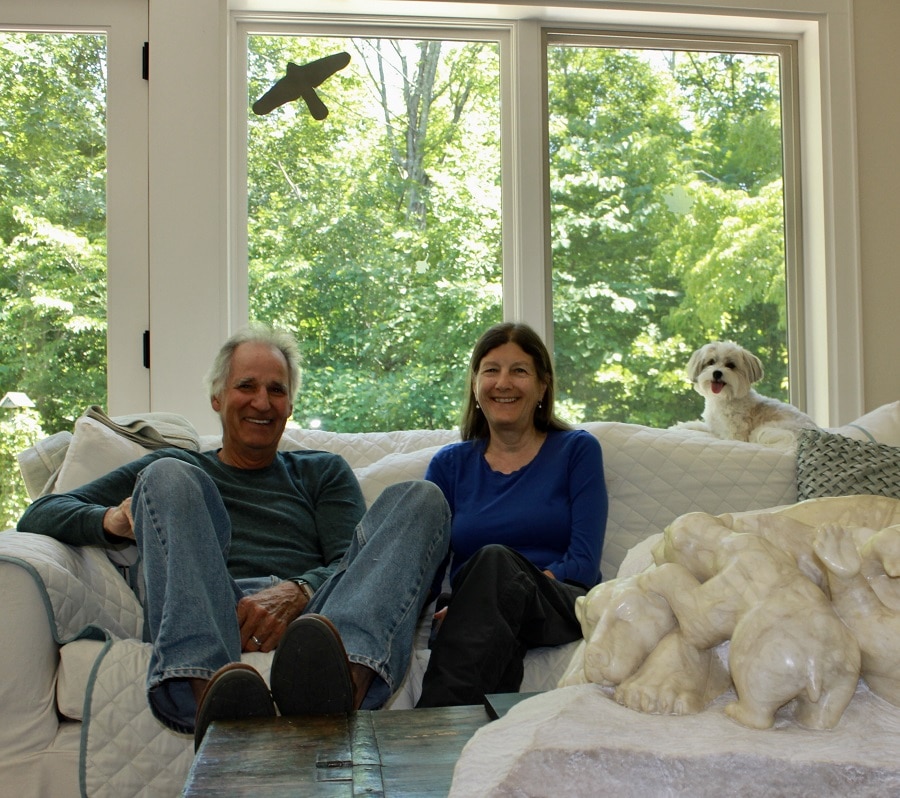
“This was a perfect match for us to get involved. Habitat and wildlife go hand in hand. Help one and you help the other,” said Dale Weiler.
Weiler helped fund the acquisition along with his wife Loti Woods. The pair are frequent philanthropists to wildlife conservation causes. (See their story.) “This is a way to educate the public on conservation,” Weiler says. “They see a restored site and they can see how much was added to the wealth of wildlife.”
“We learned that private financing is a different way to help,” Woods said. “Many haven’t thought that this is a way to deploy their money and receive a benefit with little risk.”
Other private investors who supported the project were Mary Fanslow, Randy Hall and Annie Keck-Hall, Tom and Susan McHugh, and Fred and Lauren Weed. Fanslow explains that Conserving Carolina is interested in working with private funders on future projects as well. A minimum investment is required, with the promise of a low-interest return on investment similar to a money market account. As always, donations of any amount are always welcome!
On the horizon for the Kings Bridge property is a potential transfer to the North Carolina Wildlife Resources Commission, which will ultimately decide the best path for the property. There is no design plan in place yet, but Lee says there is potential for one muskie slough, or a possible wetland restoration. The land corridor is along the official state paddle trail on the French Broad, which means any cleanup will be beneficial for paddlers.
“With restoration, it’s easy to talk about one property, but the true goal is to have a regional effect. When you have similar restoration efforts taking place upstream, it provides a much better overall impact,” said Lee.
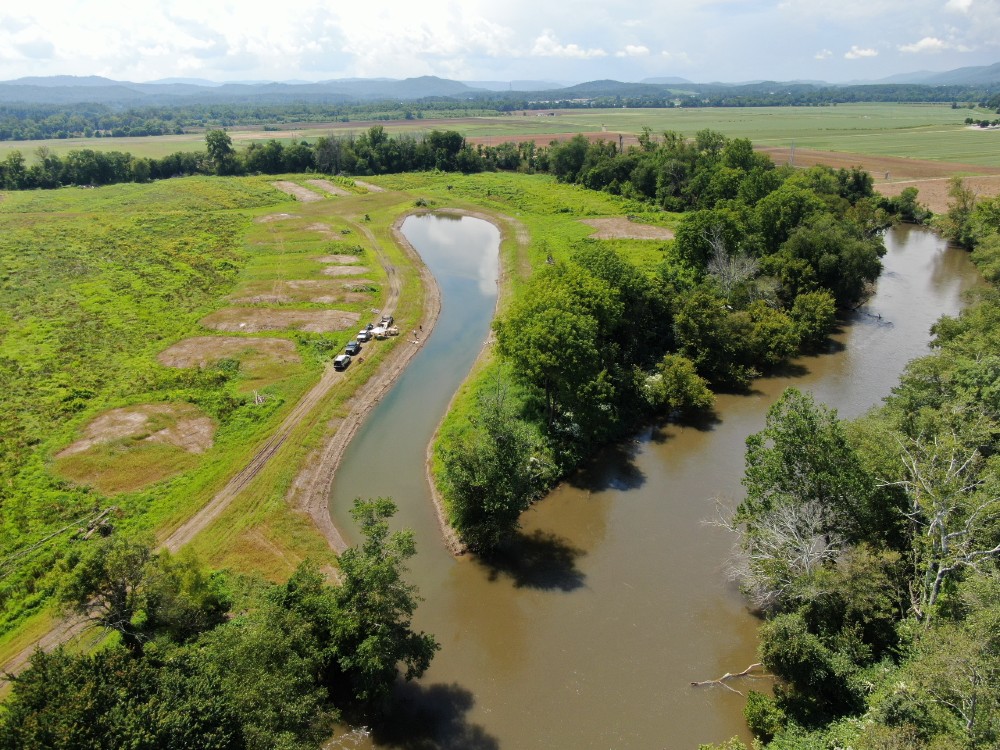
Pat Barcas is an AmeriCorps Project Conserve member who is supporting communications and education at Conserving Carolina.
